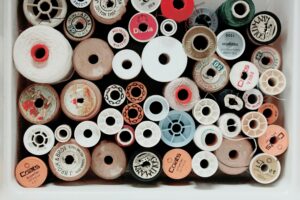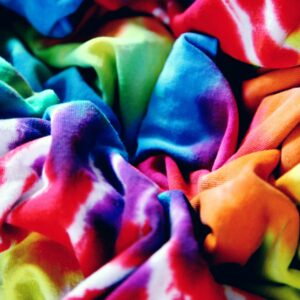In a world where trends change at the speed of a tweet (or should we say an ‘x’), and runway styles become yesterday’s news before the next season arrives, the fashion industry has found itself caught in the whirlwind of fast fashion. While the allure of inexpensive, on-trend garments has captured the hearts of consumers, the environmental toll of this rapid turnover has become increasingly apparent. In this exploration, we delve into the impact of fast fashion on the environment and illuminate how choosing organic cotton becomes a beacon for those seeking a more conscious and sustainable approach to clothing consumption.
The Dark Side of Fast Fashion
Fast fashion operates on a model of rapid production, quick turnover, and disposable trends. This cycle encourages consumers to constantly update their wardrobes, resulting in a staggering amount of clothing waste. According to the Ellen MacArthur Foundation, the equivalent of one garbage truck of textiles is landfilled or burned every second, highlighting the urgent need for a shift in consumer behavior.
The environmental consequences of this rampant consumerism are far-reaching. From excessive water usage and chemical pollution to energy-intensive production processes, the fast fashion industry is a significant contributor to environmental degradation. The “buy, wear, discard” mentality perpetuates a cycle that strains our planet’s resources and exacerbates the carbon footprint of the fashion industry.
Organic Cotton: A Sustainable Antidote
Amidst the fast fashion chaos, organic cotton emerges as a hope of sustainability. Unlike conventionally grown cotton, organic cotton is cultivated without synthetic pesticides and fertilizers. This cleaner cultivation process not only safeguards the health of the soil and ecosystems but also reduces the risk of harmful residues on the fabric.
The choice to embrace organic cotton aligns with a shift towards conscious consumption. By investing in garments made from organic cotton, consumers signal a departure from the disposable fashion mindset. These timeless pieces, crafted with care and consideration for the environment, encourage a more intentional approach to wardrobe curation.
Slow Fashion, Thoughtful Choices
The slow fashion movement, an antidote to the frenetic pace of fast fashion, emphasizes quality over quantity and advocates for garments that stand the test of time. Choosing organic cotton seamlessly aligns with the principles of slow fashion. The durability, breathability, and comfort of organic cotton ensure that these garments withstand the trials of time, becoming cherished items rather than short-lived trends.
Moreover, organic cotton supports fair labor practices and ethical standards. The commitment to environmental sustainability extends beyond the cultivation process, fostering a supply chain that prioritizes the well-being of both the planet and the people involved in its production.
The Power of Informed Decisions
Breaking the fast fashion cycle requires a fundamental shift in consumer behavior. Opting for organic cotton represents a powerful and informed choice that transcends the transient nature of fast fashion. It symbolizes a commitment to sustainability, ethical practices, and a more thoughtful approach to how we engage with our wardrobes.
As we navigate the ever-evolving landscape of fashion, let’s choose garments that tell a story of conscious consumption—pieces that not only make a statement but also stand as a testament to our responsibility towards the environment and future generations. Embracing organic cotton becomes a pivotal step in crafting a wardrobe that aligns with values of longevity, sustainability, and a brighter, more conscientious fashion future.




